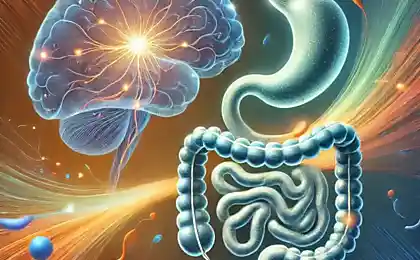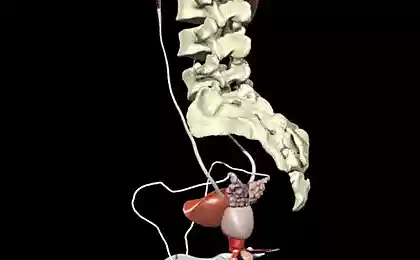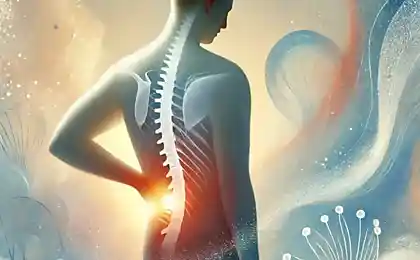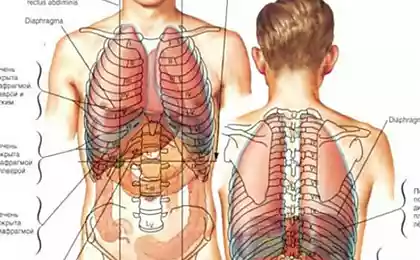202
15 Conditions With Psychosomatic Causes

Introduction: What is psychosomatics?
Psychosomatics is a direction in medicine and psychology that studies the influence of psychological factors on the occurrence and course of physical diseases. In other words, it is the connection between our emotional state and bodily health. Many of us have faced situations where physical discomfort or even serious illnesses have occurred amid stress, anxiety or repressed emotions.
According to research, up to 40% of all visits to doctors are associated with psychosomatic disorders. This means that our body often “screams” about things that our soul cannot express in words. In this article, we look at 15 conditions that can have psychosomatic causes, and look at how emotions affect our health.
1. Headaches and migraines
Headaches often occur against the background of stress, fatigue or emotional stress. Repressed emotions, such as anger or anxiety, can cause vascular spasms, leading to migraines. Studies show that people who are prone to perfectionism are more likely to suffer from headaches.
2. Back pain
Back pain can be associated with feeling overwhelmed and lack of support. Psychologists note that people who take on too many responsibilities often complain of low back pain. This is a kind of body signal that it is time to drop the extra load.
3. Stomach problems
Gastritis, ulcers and irritable bowel syndrome often have psychosomatic roots. Stress and anxiety disrupt the gastrointestinal tract, causing inflammation and discomfort. Emotions such as fear and anger can literally not be digested by our bodies.
4. Skin diseases
Eczema, psoriasis and acne can be associated with internal conflicts and suppressed emotions. The skin is our protective barrier, and it often responds to emotional experiences. For example, shame or guilt can manifest as rashes.

5. Insomnia
Sleep disorders often occur against the background of anxiety and anxiety. The brain, overloaded with negative thoughts, cannot relax, leading to insomnia. Psychologists recommend working with inner fears and anxieties to restore healthy sleep.
6. Chronic fatigue
Feeling constantly tired can be linked to emotional burnout. When we ignore our needs for a long time and live in a wear-and-wear mode, the body begins to signal exhaustion. This condition requires not only physical but also emotional recovery.
7. Heart problems
Cardiovascular diseases such as hypertension and arrhythmia are often associated with chronic stress. Emotions such as anger and resentment can increase pressure and put a strain on the heart. Psychologists recommend learning to express emotions in a healthy way to protect your heart.
8. Allergies
Allergic reactions can be associated with internal resistance or rejection of something. For example, a pollen allergy can symbolize a rejection of life changes. Working with internal installations can help reduce allergies.
9. Breathing problems
Asthma and other respiratory diseases are often psychosomatic in nature. Feelings of fear or depression can cause airway spasms. Psychologists recommend practicing breathing techniques to relieve tension.
10. Joint pain
Arthritis and other joint diseases can be associated with feelings of resentment or anger. Joints symbolize flexibility, and when we cannot bend under the pressure of circumstances, the body reacts with pain.

11. Weight problems
Excess weight or, conversely, a sharp weight loss can be associated with emotional problems. Eating often becomes a way to cope with stress or fill an inner void. Working with self-esteem and emotions helps to normalize weight.
12. Thyroid problems
Thyroid diseases are often associated with feelings of helplessness and suppressed emotions. The thyroid regulates metabolism, and its dysfunction can be a signal that a person cannot cope with life's loads.
13. Problems with the genitourinary system
Cystitis and other diseases of the genitourinary system can be associated with feelings of guilt or fear. These emotions cause tension in the pelvis, which leads to inflammation.
14. Dental problems
Toothache and gum disease may be associated with suppressed aggression or fear. Teeth symbolize our ability to bite and defend ourselves, and when we are unable to express our emotions, the body reacts with pain.
15. Immunity problems
Frequent colds and infections can be associated with chronic stress and emotional exhaustion. The immune system weakens when we cannot cope with emotional stress.
Conclusion: How do you deal with psychosomatics?
Psychosomatic states are signals from our bodies that something is wrong in our emotional lives. To deal with them, it’s important to learn to recognize and express your emotions, and find healthy ways to relieve stress. Psychologists recommend practicing meditation, keeping a diary of emotions, and seeking professional help if necessary.
Remember that health is not only a physical, but also an emotional state. Taking care of your mental well-being is the first step to a healthy and happy life.
Nimbu chawal - lemon rice: A fragrant side dish from India
Learning how to make decisions: A guide for those who are constantly in doubt























